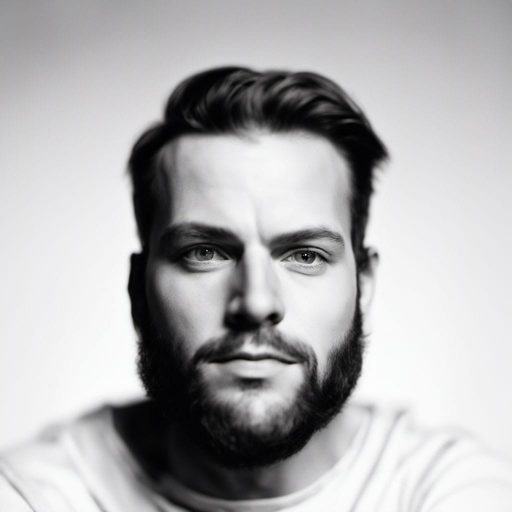5 utility tokens with the strongest revenue-backed fundamentals

In Brief
These five crypto tokens—BAT, Toncoin, Filecoin, MBG, and GMX—stand out by linking real-world usage and recurring revenue directly to token value, distinguishing them from purely speculative assets.

In the crypto market, plenty of tokens ride the waves of hype and narratives. Yet there’s a category backed by tangible fundamentals – linked to real products or services, with measurable cash flows. Below are five tokens that play a functional role within their ecosystems and derive part of their value from recurring revenue.
1. BAT: monetizing user attention with transparent payouts
The Basic Attention Token (BAT) powers Brave’s privacy-focused browser and advertising ecosystem. When users opt in to Brave Rewards, they receive 70% of advertising revenue from participating brands, paid in BAT. The remaining share stays with Brave, while publishers and creators earn BAT through contributions and sponsored content.
By allocating the majority of ad spend directly to end users, Brave’s model redefines digital advertising economics. Therefore, BAT is the settlement asset for an active, recurring revenue stream that connects advertisers, audiences, and content producers.
2. Toncoin: protocol utility meets mass-market distribution
Toncoin is the native currency of The Open Network (TON), where it is used for transaction fees, staking, validator rewards, and network services such as domain names and in-app payments. In 2024, Telegram integrated Toncoin into its advertising platform, enabling ad purchases in Toncoin and paying eligible channel owners 50% of ad revenue in the token.
This move brought TON’s utility to Telegram’s hundreds of millions of users and linked it directly to a significant, recurring source of corporate revenue. Combined with protocol-level staking incentives, Toncoin’s demand drivers span both decentralized infrastructure and one of the largest social platforms in the world.
3. Filecoin (FIL): decentralized storage with verified-data incentives
FIL serves as the payment and incentive layer for Filecoin’s decentralized data storage market. Clients pay in FIL to store or retrieve data, while providers earn the token through service fees and protocol block rewards. Collateral requirements and slashing mechanisms align incentives for reliability and uptime.
Through its Filecoin Plus (Fil+) program, the network boosts rewards for verified data: deals with DataCap receive a tenfold quality adjustment to consensus power, increasing block reward share without adding raw capacity. This structure directly ties FIL issuance to genuine storage demand and verifiable service delivery.
4. MBG: regulated brokerage revenue on-chain
The MultiBank Group’s MBG Utility Token the cash flow of a global brokerage business into a digital asset. Used across the Group’s trading and exchange platforms, MBG offers fee reductions, platform privileges, and governance participation. The issuer has committed to a buyback-and-burn program funded by operational revenue, targeting $58.2 million in the first year and up to $440 million over four years.
Launched on July 22, 2025, and listed on MultiBank.io, MEXC, Gate.io, and Uniswap, MBG is positioned as an access point for regulated finance in Web3. Its linkage to an existing, profitable business distinguishes it from purely crypto-native tokens.
5. GMX: revenue-sharing at the core of a decentralized exchange
GMX is the utility and governance token of the GMX exchange, operating on Arbitrum and Avalanche. Its tokenomics hardwire revenue sharing into the protocol: GMX holders receive 30% of trading fees in V1 and 27% in V2. These rules, along with a program of buybacks and distributions, are set out in governance documents and executed on-chain.
As of August 2025, the platform reports $153 billion in cumulative trading volume and around $195 million in total fees on Arbitrum and Avalanche – figures that flow directly to tokenholders under its fixed policy. GMX’s model demonstrates how a DEX can tie token value to actual usage.
From speculation to fundamentals
These five tokens stand out for a clear link between product usage and revenue, and for embedding that link in tokenholder economics.
GMX turns trading fees into on-chain payouts. BAT distributes most ad spend directly to users. Toncoin monetizes both protocol operations and Telegram’s ad business. Filecoin ties token rewards to real storage capacity and verified data. MBG directs brokerage income into a structured buyback and platform utility.
As the market matures, tokens with transparent, revenue-backed fundamentals are well positioned to outlast hype cycles and to serve as building blocks for a more integrated financial ecosystem.
Disclaimer
In line with the Trust Project guidelines, please note that the information provided on this page is not intended to be and should not be interpreted as legal, tax, investment, financial, or any other form of advice. It is important to only invest what you can afford to lose and to seek independent financial advice if you have any doubts. For further information, we suggest referring to the terms and conditions as well as the help and support pages provided by the issuer or advertiser. MetaversePost is committed to accurate, unbiased reporting, but market conditions are subject to change without notice.
About The Author
Gregory, a digital nomad hailing from Poland, is not only a financial analyst but also a valuable contributor to various online magazines. With a wealth of experience in the financial industry, his insights and expertise have earned him recognition in numerous publications. Utilising his spare time effectively, Gregory is currently dedicated to writing a book about cryptocurrency and blockchain.
More articles

Gregory, a digital nomad hailing from Poland, is not only a financial analyst but also a valuable contributor to various online magazines. With a wealth of experience in the financial industry, his insights and expertise have earned him recognition in numerous publications. Utilising his spare time effectively, Gregory is currently dedicated to writing a book about cryptocurrency and blockchain.


















































